雙語(yǔ)閱讀:人工智能
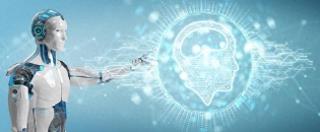
摘要:本文探討了人工智能(AI)的概念、發(fā)展歷程、對(duì)社會(huì)和人類的影響以及未來(lái)前景。文章首先介紹了人工智能的定義,即機(jī)器執(zhí)行通常需要人類智能的任務(wù)的能力。接著回顧了AI的歷史發(fā)展,從早期的樂(lè)觀和熱情到如今的技術(shù)進(jìn)步。然后討論了AI對(duì)社會(huì)和人類的影響,包括提高效率、降低成本、增強(qiáng)決策能力等好處,以及可能導(dǎo)致的就業(yè)減少和社會(huì)動(dòng)蕩等挑戰(zhàn)。最后,展望了AI的未來(lái)前景,強(qiáng)調(diào)了可解釋AI和協(xié)作AI的重要性。
Artificial Intelligence: A Journey of Innovation and Transformation
人工智能:創(chuàng)新與變革之旅
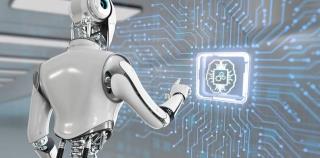
Since the dawn of civilization, humans have been fascinated by the idea of creating intelligent machines that can think, learn, and adapt like humans. This quest for artificial intelligence (AI) has led to remarkable advancements in technology, transforming the way we live, work, and interact with each other. In this article, we will explore the concept of AI, its historical development, impact on society and humanity, and future prospects.
自文明的曙光以來(lái),人類一直著迷于創(chuàng)造能夠像人類一樣思考、學(xué)習(xí)和適應(yīng)的機(jī)器。這種對(duì)人工智能(AI)的追求已經(jīng)帶來(lái)了技術(shù)方面的顯著進(jìn)步,改變了我們生活、工作和相互交流的方式。在本文中,我們將探討人工智能的概念、發(fā)展歷程、對(duì)社會(huì)和人類的影響以及未來(lái)前景。

The Concept of Artificial Intelligence
人工智能的概念
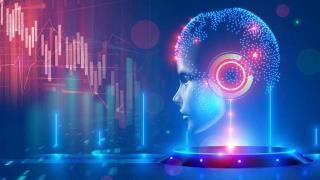
Artificial intelligence refers to the ability of machines to perform tasks that typically require human intelligence, such as learning, problem-solving, decision-making, and natural language processing. AI can be broadly categorized into two types: narrow or weak AI, which is designed to perform a specific task, and general or strong AI, which can perform any intellectual task that a human can.
人工智能指的是機(jī)器執(zhí)行通常需要人類智能的任務(wù)的能力,例如學(xué)習(xí)、解決問(wèn)題、決策和自然語(yǔ)言處理。人工智能可以大致分為兩類:狹義或弱人工智能,旨在執(zhí)行特定任務(wù);廣義或強(qiáng)人工智能,可以執(zhí)行任何人類可以完成的智力任務(wù)。
Historical Development of Artificial Intelligence
人工智能的歷史發(fā)展
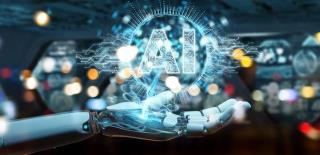
The history of AI dates back to the mid-20th century when computer scientists began exploring the possibility of creating intelligent machines. The early years of AI research were characterized by optimism and enthusiasm, with researchers predicting that machines would surpass human intelligence within a few decades. However, progress was slow due to limitations in computing power and lack of understanding of human cognition.
人工智能的歷史可以追溯到20世紀(jì)中葉,當(dāng)時(shí)計(jì)算機(jī)科學(xué)家開(kāi)始探索創(chuàng)建智能機(jī)器的可能性。早期的AI研究充滿了樂(lè)觀和熱情,研究人員預(yù)測(cè)機(jī)器將在幾十年內(nèi)超越人類的智能。然而,由于計(jì)算能力的限制和對(duì)人類認(rèn)知理解的缺乏,進(jìn)展緩慢。

In the 1950s and 1960s, AI experienced a period of rapid growth known as the "first wave" of AI. During this time, researchers developed various algorithms and techniques for machine learning, pattern recognition, and natural language processing. However, these early AI systems were limited by their reliance on handcrafted rules and lacked the ability to learn from data.
20世紀(jì)50年代和60年代是人工智能發(fā)展的第一階段,被稱為“第一波”AI。在此期間,研究人員開(kāi)發(fā)了各種機(jī)器學(xué)習(xí)算法、模式識(shí)別和自然語(yǔ)言處理技術(shù)。然而,這些早期的AI系統(tǒng)受限于其對(duì)手工制作規(guī)則的依賴,并且缺乏從數(shù)據(jù)中學(xué)習(xí)的能力。

The second wave of AI began in the 1980s and continued through the 1990s. This period saw the emergence of more sophisticated machine learning algorithms, such as neural networks and decision trees, which enabled machines to learn from data and improve their performance over time. Additionally, advances in hardware technology, such as graphics processing units (GPUs), made it possible to train larger and more complex models.
第二波人工智能始于20世紀(jì)80年代并持續(xù)到90年代。這一時(shí)期出現(xiàn)了更復(fù)雜的機(jī)器學(xué)習(xí)算法,如神經(jīng)網(wǎng)絡(luò)和決策樹(shù),使機(jī)器能夠從數(shù)據(jù)中學(xué)習(xí)并隨著時(shí)間的推移提高其性能。此外,硬件技術(shù)的進(jìn)步,如圖形處理單元(GPU),使得訓(xùn)練更大、更復(fù)雜的模型成為可能。
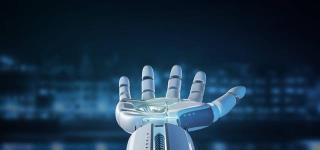
Impact of Artificial Intelligence on Society and Humanity
人工智能對(duì)社會(huì)和人類的影響

AI has had a profound impact on society and humanity, transforming industries ranging from healthcare and finance to transportation and entertainment. Some of the key benefits of AI include increased efficiency, improved accuracy, reduced costs, and enhanced decision-making capabilities.
人工智能對(duì)社會(huì)和人類產(chǎn)生了深遠(yuǎn)的影響,改變了從醫(yī)療保健和金融到交通和娛樂(lè)的各個(gè)行業(yè)。人工智能的一些關(guān)鍵好處包括提高效率、提高準(zhǔn)確性、降低成本和增強(qiáng)決策能力。

However, AI also poses significant challenges and risks. One of the most pressing concerns is the potential displacement of jobs as machines become increasingly capable of performing tasks traditionally done by humans. This could lead to widespread unemployment and social unrest if not addressed proactively.
然而,人工智能也帶來(lái)了重大挑戰(zhàn)和風(fēng)險(xiǎn)。最緊迫的問(wèn)題之一是隨著機(jī)器變得越來(lái)越有能力執(zhí)行傳統(tǒng)上由人類完成的任務(wù),可能導(dǎo)致就業(yè)機(jī)會(huì)的減少。如果不積極應(yīng)對(duì),這可能導(dǎo)致廣泛的失業(yè)和社會(huì)動(dòng)蕩。

Another concern is the ethical implications of AI, particularly in areas such as privacy, security, and bias. As AI systems become more autonomous and make decisions without human intervention, there is a risk that they may perpetuate or even exacerbate existing societal biases and inequalities.
另一個(gè)關(guān)切是人工智能的倫理問(wèn)題,特別是在隱私、安全和偏見(jiàn)方面。隨著AI系統(tǒng)變得越來(lái)越自主并在沒(méi)有人類干預(yù)的情況下做出決策,存在它們可能加劇甚至惡化現(xiàn)有社會(huì)偏見(jiàn)和不平等的風(fēng)險(xiǎn)。
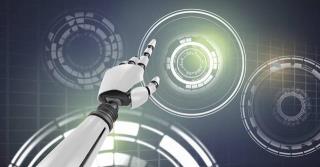
Future Prospects of Artificial Intelligence
人工智能的未來(lái)前景

The future of AI is both exciting and uncertain. On one hand, AI has the potential to revolutionize virtually every aspect of our lives, from healthcare and education to transportation and energy. On the other hand, there are significant challenges and risks associated with the development and deployment of advanced AI systems.
人工智能的未來(lái)既令人興奮又不確定。一方面,人工智能有潛力徹底改變我們生活的方方面面,從醫(yī)療保健和教育到交通和能源。另一方面,先進(jìn)的AI系統(tǒng)的開(kāi)發(fā)和部署存在重大挑戰(zhàn)和風(fēng)險(xiǎn)。
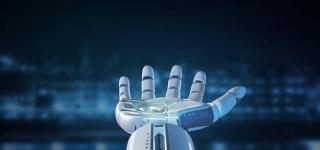
One promising area of future research is explainable AI (XAI), which aims to develop AI systems that are transparent, interpretable, and accountable. XAI is essential for building trust in AI systems and ensuring that they align with human values and goals.
一個(gè)有前途的研究領(lǐng)域是可解釋人工智能(XAI),旨在開(kāi)發(fā)透明、可解釋和負(fù)責(zé)任的AI系統(tǒng)。對(duì)于建立對(duì)AI系統(tǒng)的信任并確保它們符合人類價(jià)值觀和目標(biāo)至關(guān)重要的是XAI。
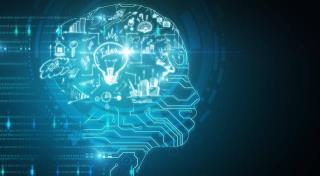
Another area of focus is collaborative AI, which involves developing AI systems that can work alongside humans rather than replace them. Collaborative AI has the potential to enhance human productivity and creativity while addressing some of the ethical concerns associated with fully autonomous AI systems.
另一個(gè)重點(diǎn)領(lǐng)域是協(xié)作AI,它涉及開(kāi)發(fā)能夠與人類合作而不是取代人類的AI系統(tǒng)。協(xié)作AI有可能提高人類的生產(chǎn)力和創(chuàng)造力,同時(shí)解決完全自主AI系統(tǒng)的某些倫理問(wèn)題。
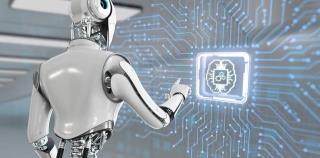
Conclusion
Artificial intelligence has come a long way since its inception, but there is still much to be learned and achieved. As we continue to push the boundaries of AI research and development, it is crucial that we do so in a responsible and ethical manner that prioritizes the well-being of society and humanity as a whole. By doing so, we can unlock the full potential of AI and create a brighter future for all.
自人工智能誕生以來(lái),它已經(jīng)取得了長(zhǎng)足的進(jìn)步,但仍有許多需要學(xué)習(xí)和實(shí)現(xiàn)的地方。隨著我們繼續(xù)推動(dòng)人工智能研究和開(kāi)發(fā)的邊界,我們必須以一種負(fù)責(zé)任和道德的方式行事,優(yōu)先考慮社會(huì)和整個(gè)人類的福祉。通過(guò)這樣做,我們可以解鎖人工智能的全部潛力,為所有人創(chuàng)造一個(gè)更美好的未來(lái)。
- 免責(zé)聲明
- 本文所包含的觀點(diǎn)僅代表作者個(gè)人看法,不代表新火種的觀點(diǎn)。在新火種上獲取的所有信息均不應(yīng)被視為投資建議。新火種對(duì)本文可能提及或鏈接的任何項(xiàng)目不表示認(rèn)可。 交易和投資涉及高風(fēng)險(xiǎn),讀者在采取與本文內(nèi)容相關(guān)的任何行動(dòng)之前,請(qǐng)務(wù)必進(jìn)行充分的盡職調(diào)查。最終的決策應(yīng)該基于您自己的獨(dú)立判斷。新火種不對(duì)因依賴本文觀點(diǎn)而產(chǎn)生的任何金錢(qián)損失負(fù)任何責(zé)任。





 新火種
2024-01-03
新火種
2024-01-03 






